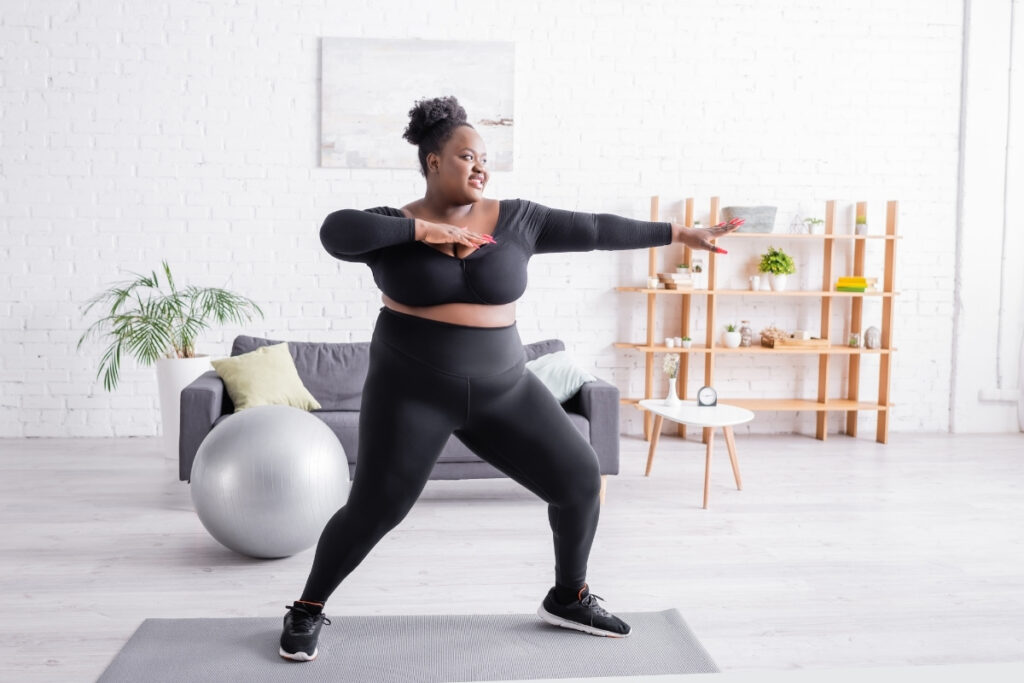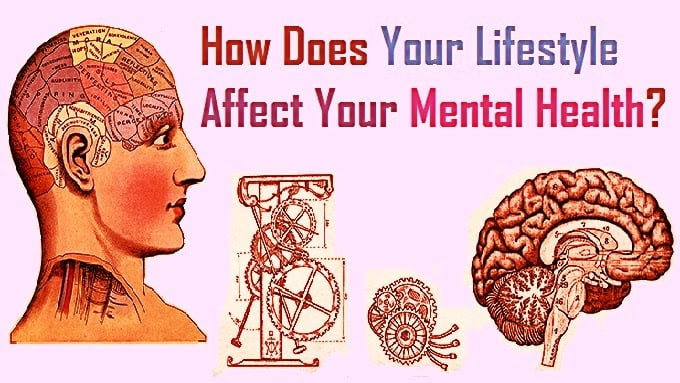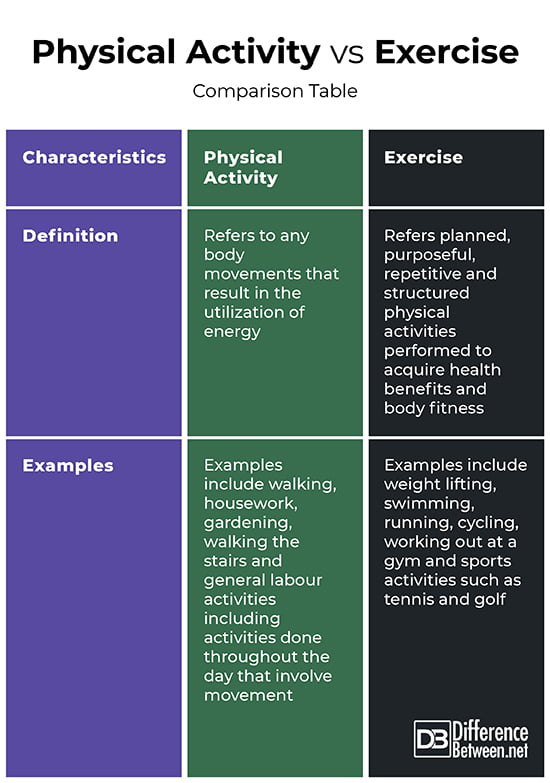Have you ever wondered what happens if you exercise without dieting? It’s a common question that many people ask when they’re trying to lose weight or improve their fitness. The truth is, exercise and diet go hand in hand when it comes to achieving your health and wellness goals. While exercise alone can have some benefits, combining it with a healthy diet is the key to maximizing your results and overall well-being.
When you exercise without dieting, you may see some initial improvements in your fitness level. Your strength, endurance, and cardiovascular health can all improve with regular physical activity. However, if your goal is weight loss, exercise alone may not be enough. Without a proper diet, it can be challenging to create a calorie deficit, which is necessary for shedding those extra pounds. Additionally, exercise stimulates your appetite, and without proper nutrition, you may be tempted to consume more calories than you burn, resulting in little to no weight loss.
To truly see the results you desire, it’s important to combine exercise with a balanced and nutritious diet. This combination allows you to fuel your body properly, provide the necessary nutrients for recovery and muscle growth, and create a calorie deficit that promotes weight loss. So, don’t neglect the importance of a healthy diet when you’re working hard in the gym or engaging in physical activity. Remember, exercise and diet work together synergistically to help you achieve your fitness goals and lead a healthier lifestyle.

What Happens if You Exercise Without Dieting?
Exercise is an important component of a healthy lifestyle, and many people engage in regular physical activity to improve their fitness levels, build strength, and boost their overall well-being. However, exercise alone may not always lead to the desired results if it is not accompanied by a proper diet. In this article, we will explore what happens when you exercise without dieting and why a balanced approach is crucial for achieving optimal health and fitness.
The Role of Diet in Exercise
Diet plays a significant role in supporting exercise efforts and maximizing their benefits. When you exercise, your body requires fuel to perform optimally. This fuel comes from the food you consume, specifically the macronutrients: carbohydrates, proteins, and fats. Carbohydrates provide energy for immediate use during exercise, while proteins help repair and build muscle tissue. Fats serve as a source of energy for prolonged, low-intensity activities.
Without a proper diet, your body may not have the necessary nutrients to support exercise effectively. Inadequate calorie intake can lead to fatigue and reduced performance during workouts. Insufficient protein intake can impede muscle repair and growth, making it harder to build strength and endurance. Additionally, a lack of essential vitamins and minerals can hinder overall health and recovery.
The Impact on Weight Loss
One of the main reasons people engage in exercise is to lose weight. However, solely relying on exercise without paying attention to your diet can make weight loss more challenging. While exercise burns calories, if you consume more calories than you burn, you may not see the desired weight loss results.
Exercise alone may not create a sufficient calorie deficit to promote significant weight loss. For example, an hour of moderate-intensity cardio may burn around 300-400 calories, which can easily be offset by consuming high-calorie foods or drinks. To lose weight effectively, it is essential to create a calorie deficit through a combination of exercise and a balanced diet.
In addition, exercise can increase appetite, and without proper dietary choices, it can be easy to overeat or consume unhealthy foods. This can hinder weight loss efforts and lead to frustration. Therefore, incorporating a nutritious diet alongside exercise is vital for achieving sustainable weight loss.
The Importance of Nutrition for Performance
Dietary choices not only affect weight management but also impact exercise performance. When you exercise without dieting, you may find that your workouts become more challenging, and you are unable to reach your full potential. Proper nutrition helps fuel your body, enhance endurance, and improve recovery.
Carbohydrates, for instance, are the primary energy source for high-intensity exercise. Without an adequate supply of carbohydrates, you may experience fatigue and reduced stamina during workouts. Similarly, protein is vital for muscle repair and growth, allowing you to build strength and recover more efficiently between exercise sessions.
Furthermore, consuming a variety of vitamins and minerals from fruits, vegetables, and whole foods supports optimal health and immune function. These nutrients help protect your body from oxidative stress and inflammation caused by intense exercise, reducing the risk of injury and illness.
The Risks of Overtraining
When you exercise without paying attention to your diet, you may be at a higher risk of overtraining. Overtraining occurs when the body does not have sufficient time to recover between workouts, leading to a decline in performance and an increased risk of injury.
Without proper nutrition, your body may struggle to recover adequately, prolonging the time needed for muscle repair and replenishment of energy stores. This can lead to persistent muscle soreness, decreased immune function, hormonal imbalances, and even mood disturbances.
To prevent overtraining, it is essential to prioritize rest and recovery, as well as provide your body with the nutrients it needs to repair and rebuild. A balanced diet that includes a variety of macronutrients, vitamins, and minerals is crucial for supporting recovery and preventing overtraining.
The Benefits of Combining Exercise and Diet
While exercise alone may not yield the desired results, combining it with a healthy diet can have numerous benefits. By nourishing your body properly, you can enhance your exercise performance, optimize weight loss efforts, and improve overall health.
A balanced diet provides the necessary nutrients to fuel your workouts, allowing you to perform at your best. It supports muscle repair and growth, enabling you to build strength and endurance over time. Additionally, a nutritious diet helps create a calorie deficit, aiding in weight loss and body composition changes.
Furthermore, exercise and diet together contribute to improved cardiovascular health, increased bone density, better mental well-being, and reduced risk of chronic diseases such as diabetes and heart disease. When you prioritize both exercise and diet, you can achieve long-term, sustainable results and maintain a healthy and vibrant lifestyle.
In conclusion, exercising without dieting may not lead to the desired outcomes in terms of weight loss, performance, and overall health. A balanced approach that combines exercise and a nutritious diet is crucial for achieving optimal results. By fueling your body properly and providing it with the necessary nutrients, you can maximize the benefits of exercise, promote weight loss, and improve your well-being. Remember, a holistic approach to fitness and health is always the key to long-term success.
Key Takeaways: What Happens if You Exercise Without Dieting?
- Exercise alone may not lead to significant weight loss if you don’t also follow a healthy diet.
- Without a proper diet, you may not see changes in body composition despite exercising regularly.
- Exercise can improve cardiovascular health, increase muscle strength, and boost mood even without dieting.
- However, diet plays a crucial role in providing the necessary nutrients for overall health and weight management.
- Combining exercise with a balanced diet is the most effective way to achieve long-term weight loss and overall well-being.
Frequently Asked Questions
Many people wonder about the effects of exercising without dieting. While exercise is undoubtedly beneficial for overall health and well-being, it is important to understand the potential outcomes of not combining it with a proper diet. Below, we answer some common questions related to this topic.
Q: Can you lose weight by exercising without dieting?
Exercise plays a crucial role in weight loss by burning calories. However, losing weight solely through exercise without a balanced diet can be challenging. When you exercise without dieting, you may still burn calories, but if you consume more calories than you burn, weight loss may be minimal or even non-existent. A calorie deficit, which is achieved through a combination of exercise and a healthy diet, is essential for sustainable weight loss.
Furthermore, exercise can increase your appetite, making it easier to consume more calories than you burn. This can hinder weight loss efforts, especially if you have a tendency to overeat. Therefore, it is crucial to pay attention to both exercise and diet for effective weight management.
Q: What are the potential consequences of exercising without dieting?
Exercising without making dietary changes can have various consequences on your health. Firstly, without proper nutrition, you may lack the necessary nutrients to support your exercise routine. This can lead to decreased energy levels, muscle fatigue, and impaired recovery.
In addition, if you exercise without providing your body with adequate fuel, you may experience muscle loss instead of fat loss. This can result in a decrease in overall strength and a slower metabolism, making it harder to achieve your fitness goals in the long run.
Q: Can you build muscle without dieting?
Building muscle requires a combination of resistance training and proper nutrition. While exercise is crucial for stimulating muscle growth, diet plays a significant role in providing the necessary nutrients for muscle repair and growth. Without adequate protein intake and overall calorie balance, it can be challenging to build muscle efficiently.
Additionally, without proper nutrition, your body may not have the necessary resources to recover from intense workouts, leading to increased muscle soreness and longer recovery times. Therefore, a well-rounded approach that combines exercise and diet is recommended for optimal muscle growth.
Q: How does dieting complement exercise?
Dieting complements exercise by providing the necessary nutrients to fuel your workouts and support your overall fitness goals. A balanced diet that includes a variety of fruits, vegetables, lean proteins, and whole grains can enhance your energy levels, improve performance, and aid in muscle recovery.
Moreover, a healthy diet can help you maintain a calorie deficit, which is necessary for weight loss. By combining exercise with a well-balanced diet, you can maximize the benefits of both and achieve sustainable results.
Q: What are some tips for combining exercise and diet effectively?
To combine exercise and diet effectively, consider the following tips:
1. Focus on whole, nutrient-dense foods that provide essential vitamins and minerals.
2. Prioritize lean proteins to support muscle growth and repair.
3. Include a variety of fruits and vegetables for their fiber content and antioxidants.
4. Stay hydrated by drinking plenty of water throughout the day.
5. Plan your meals and snacks in advance to ensure you have healthy options readily available.
By following these guidelines, you can optimize the benefits of exercise and diet for improved health and fitness.

What 10 Years of Training Without Dieting Looks Like
Final Thoughts
So, what happens if you exercise without dieting? Well, it’s clear that exercise alone is not enough to achieve your desired weight loss goals. While exercise is incredibly beneficial for your overall health and fitness, it cannot compensate for a poor diet. Without proper nutrition, your body may not have the fuel it needs to perform at its best and support muscle growth and recovery.
While exercise can help you burn calories and increase your metabolism, it’s crucial to remember that weight loss ultimately comes down to a calorie deficit. If you consume more calories than you burn, you’re unlikely to see significant changes in your weight. That’s why combining exercise with a balanced and nutritious diet is key to achieving sustainable weight loss.
Additionally, exercise without dieting may lead to feelings of frustration and disappointment. You may put in a lot of effort at the gym but not see the results you desire if your diet is not aligned with your fitness goals. It’s important to understand that exercise and diet go hand in hand when it comes to achieving optimal health and reaching your weight loss objectives.
In conclusion, while exercise is a crucial component of a healthy lifestyle, it should be combined with a nutritious diet for optimal results. By fueling your body with the right foods and maintaining a calorie deficit, you can maximize the benefits of exercise and achieve your weight loss goals. Remember, consistency is key, and finding a balance between exercise and diet will set you on the path to success.





